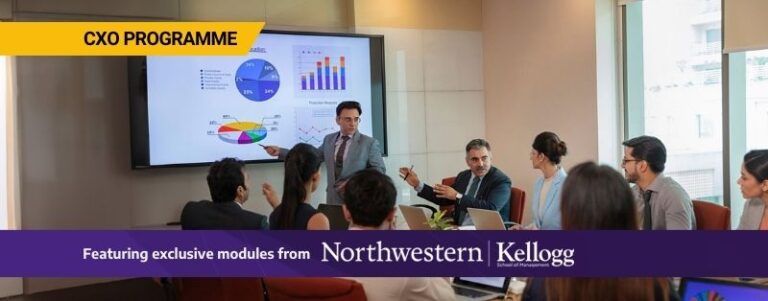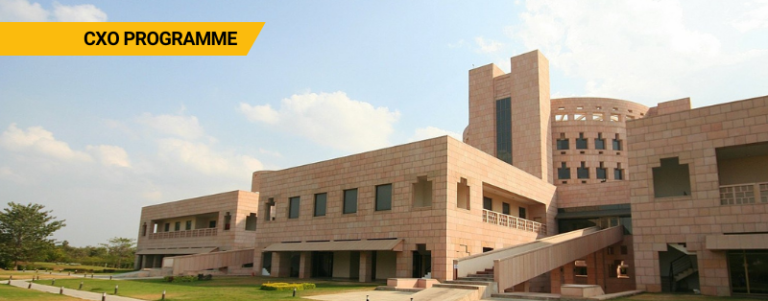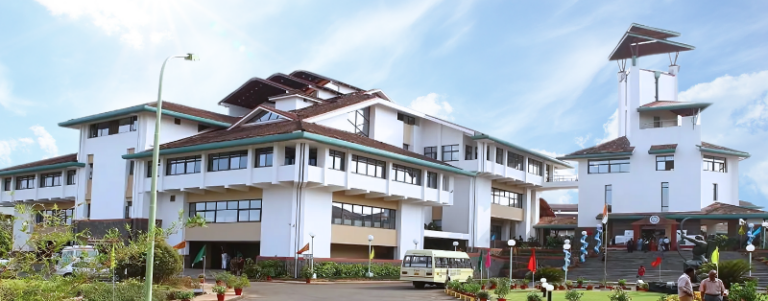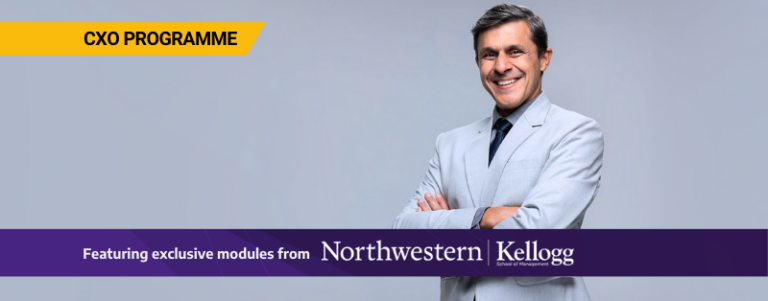10 Key Steps You Should Follow When Applying for an MBA Course

Embarking on an MBA journey is an essential and transformative step toward professional growth and success. With its potential to expand career horizons, boost business acumen, and unlock new opportunities, an MBA holds immense appeal for individuals aspiring to excel in their chosen fields. In this insightful blog, we explore the intricacies of the MBA admission process followed by Indian business schools, particularly when it comes to executive MBAs. Moreover, the knowledge and guidance gleaned from this article could help you make well-informed decisions for a thriving career in management.
MBA for Working Professionals or Executive MBA
An Executive MBA (EMBA) can be a game-changer for working professionals looking to advance their careers. Additionally, these programs cater to professionals who want to balance work and study by emphasizing practical knowledge and leadership skills. The MBA admission process typically considers professional experience, academic qualifications, and leadership potential. Furthermore, EMBA programs also provide networking opportunities, peer learning, and exposure to industry experts. So whether you choose to pursue an MBA for working professionals or an EMBA, both options offer distinct advantages. These include a competitive edge, improved business acumen, and a platform to expand your professional network.
ALSO READ: What is MBA in HR (Human Resource)?
Standard MBA Admission Process
Here are the steps of a standard MBA admission process in India:
1. Research and Exploration
To begin with, prospective candidates must familiarize themselves with different MBA programs, their requirements, and their offerings. Additionally, they should also gather information about admission criteria and program details.
2. Application Preparation
Second, applicants must compile documents such as transcripts, test scores, resumes, and essays. They must meticulously complete the application form, ensuring accuracy and clarity.
3. Submission of Application
Third, candidates should submit their completed applications online or through the designated process outlined by the respective institution.
4. Application Review
The admissions committee will meticulously assess the candidates’ applications, evaluating their academic qualifications, work experience, and potential for success in their respective fields.
5. Interviews
The shortlisted applicants may be invited for interviews to evaluate their suitability for the program further. Additionally, these interviews allow candidates to showcase their communication skills and motivations.
6. Recommendation Letters
This usually involves applicants requesting letters of recommendation from individuals who can provide insights into their character, abilities, and aptitude. Working professionals can request letters from their employers or higher management.
7. Decision Notification
At this stage, candidates are often informed of their admission status through email or an official letter.
8. Acceptance and Enrollment
Admitted candidates then accept the offer of admission and complete the necessary enrollment procedures, such as submitting deposits or signing acceptance letters.
9. Preparing for the MBA Journey
The admitted learners engage in pre-MBA activities. These include orientations, networking events, and pre-course materials to prepare for their program.
10. Commencement of MBA Program
Lastly, this is when the MBA journey begins, helping professionals embark on a transformative educational experience.
Business Management Courses
How to Apply for an MBA Course
You can successfully apply for an MBA course by following these steps:
Step1: Research and Program Selection
Conduct extensive research on MBA programs, considering curriculum, specializations, and program reputation, before beginning the MBA admission process.
Step 2: Examine Admission Criteria
Carefully examine the criteria, such as academic prerequisites, standardized test scores, work experience, and recommendation letters. Understand the program’s specific requirements.
Step 3: Prepare Application Materials
Collect necessary documents such as transcripts, recommendation letters, your resume, and a well-written statement of purpose. Ascertain that all materials are tailored to highlight your strengths and alignment with the program.
Step 4: Complete and Submit the Application
Fill out the application form completely and accurately by following every instruction to the letter. Check all the details twice and submit the same before the MBA admission process deadline.
Step 5: Follow-Up and Await Decision
Check your application status regularly using the provided portal or contact the admissions office for updates. Wait patiently for the admission decision—it often takes time.
ALSO READ: A Guide to MBA in Logistics and Supply Chain Management
Eligibility Criteria for MBA Admission
Academic Qualifications
First and foremost, a candidate must hold a bachelor’s degree in any discipline from a recognized university.
Entrance Exams
As part of the MBA admission process in India, candidates must pass national- or state-level entrance exams such as Common Management Admission Test (CMAT), Common Admission Test (CAT), and Common Entrance Test (CET).
Minimum Percentage Requirement
Many MBA programs have a minimum percentage requirement (usually between 50% and 60%) in undergraduate studies.
Work Experience
While not required for all MBA programs, some institutes prefer candidates with at least one to two years of professional experience.
Group Discussion and Personal Interview
Shortlisted candidates are typically evaluated through group discussions and personal interviews to determine their communication skills, leadership potential, and overall suitability.
Statements of Purpose and Letters of Recommendation
Applicants may be required to submit a Statement of Purpose (SOP) and letters of recommendation from professors or employers, highlighting their qualities and potential.
English Language Proficiency
Some institutes may require candidates to demonstrate English-language proficiency via exams such as TOEFL or IELTS.
Application Fee
In most institutes, candidates must pay a nonrefundable application fee when submitting their applications as part of the MBA admission process.
Specific Program Requirements
Additional eligibility criteria, such as specialization-specific prerequisites or industry-specific preferences, may apply to certain MBA programs in India.
In summary, adhering to these criteria makes the application process go smoothly, increasing your chances of admission to a desired MBA program.
Advantages of MBA for Working Professionals
Here are five advantages that make an MBA program beneficial for working professionals:
1. Schedule Flexibility
Pursuing an online MBA allows working professionals to be more flexible in managing their study time and work commitments.
2. Broader Range of Specializations
MBA programs offer various specializations, allowing professionals to tailor their studies to specific career goals and interests.
3. Networking Opportunities
Professionals can tap into diverse networks of peers, alums, and industry experts through the MBA admission process, expanding their connections and career prospects.
4. Comprehensive Skill Development
MBA programs offer a comprehensive curriculum covering various business areas, providing a well-rounded skill set applicable to various industries.
4. Entry Into New Industries
Pursuing an MBA while working can help working professionals transition into new industries or sectors, broadening career opportunities beyond their current field.
Which are the Best MBA Courses for Working Professionals in India?
Some of the most in-demand MBA courses offered by India’s best management institutes include finance, human resource management, international business, operation management, and supply chain management. This shows why the MBA admission process is of paramount value today, especially if you want to gain a footing in today’s corporate world. It enhances leadership skills, business acumen, expands career opportunities, fosters networking and collaboration, and promotes personal growth.
Frequently Asked Questions
How Do I Choose the Right MBA College in India?
To choose the right MBA college, consider reputation, curriculum, faculty, placements, and the alums’ network.
What are the Documents Required for MBA Admission in India?
The documents required for MBA admission in India include academic transcripts, entrance exam scores, proof of identity, admission forms, and passport-size photographs.
By Siddhesh Santosh

































